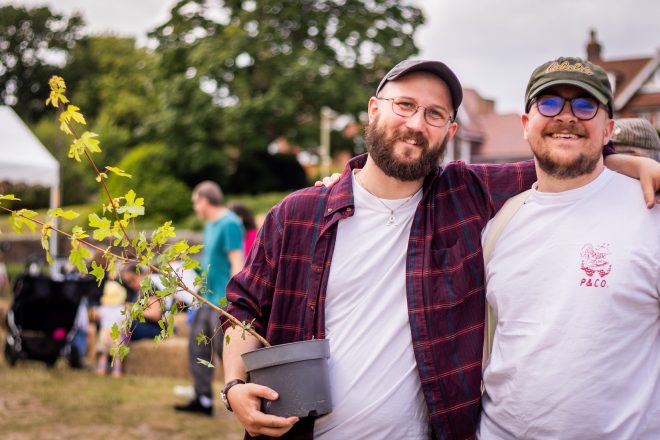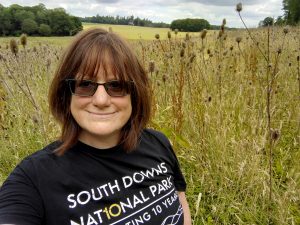New community hub celebrates climate action across the South Downs region
October 8, 2024

Local groups in and around the South Downs National Park are being encouraged to share climate action tips as a new “knowledge hub” is launched.
The past decade has seen a huge proliferation in the number of climate action and environment groups across Hampshire, Sussex and Surrey, with volunteers starting up their own locally-based initiatives to tackle climate change in both towns and rural areas.
One of the National Park’s priorities is climate action, delivered through nature-based projects, such as creating more havens for wildlife and also by supporting community projects that encourage sustainability. Examples include setting up repair cafes, training community energy champions to help save energy in the home, nest boxes for swifts and owls, and community food growing projects.
To help bring people together, the National Park has launched the South Downs Climate Action Network on Knowledge Hub, where community groups will be able to share information on their projects and provide insights, learning and expertise.
The hub will be a useful resource for residents who want to establish new groups or projects in their own communities.
Warmly welcoming the initiative is co-chair of Greening Arundel, Katrina Murray. Greening Arundel was only formed last year but has already had some big successes, including transforming a 120-metre pathway from the train station with hedgerows and wildflowers, as well as installing upcycled cattle troughs that are now full of herbs for the public to eat.
Katrina said: “My husband and I felt despondent and kept bumping into others who felt the same way. The penny dropped and we started working together and supporting each other. The momentum has been building as people saw the results and we began believing that we can make a positive difference.”
Dr Chris Sandom, a Senior Lecturer at the University of Sussex and also Director of Wild Business, which has been working with community groups to establish climate action plans, said: “It’s far better that we collaborate and have a say in the change required to tackle climate change, than to deal with the change that will be imposed on us by climate change.”
The Climate Action Knowledge Hub can be accessed via https://khub.net/ and is a free to use service for the public and not-for-profit sectors. People can register to use the online platform and can then request to join, or be invited to join, a South Downs Climate Action Network group.

Sara Osman, the National Park’s Climate Officer, said: “Climate action can seem overwhelming and it’s easy to fall into the trap of thinking nothing you do will make a difference.
“But actually, by realising that we are part of a wider network of people taking action, large and small, we realise that collectively we can make a big difference. There’s so much fantastic community work going on across the region and this new hub will bring together all that locally-based knowledge and learning into one place.
“We hope it will inspire more people and communities to get involved in tackling the climate and nature crisis.”
To find out more about the National Park’s climate work visit www.southdowns.gov.uk/climate-action-hub/
- The South Downs National Park Authority is committed to addressing the climate and nature emergencies by reaching ‘Net Zero’, both in how we run our organisation and also how we can influence emissions produced across the national park, from homes, businesses and transport etc. You can read more about what we mean by ‘net zero’ on our website southdowns.gov.uk/climate-action-hub/what-do-we-mean-by-net-zero/
- The National Park is a key partner in the Ouse Valley Climate Action (OVCA) initiative, which was awarded 2022 to become one of the first communities in the UK to fully embrace climate action.
- Here in the UK, climate projections show that we should expect to see: warmer and wetter winters; hotter and drier summers; and more frequent and intense weather extremes. This has an impact on the biodiversity of plants and animals, while other impacts could include public health, flooding, and food production. A key element of climate action is building resilience within natural and man-made infrastructure so that the effect of climate change is lessened. Coming together to deliver climate action locally will make the difference that we need to ensure the next generation inherit a more sustainable world.
